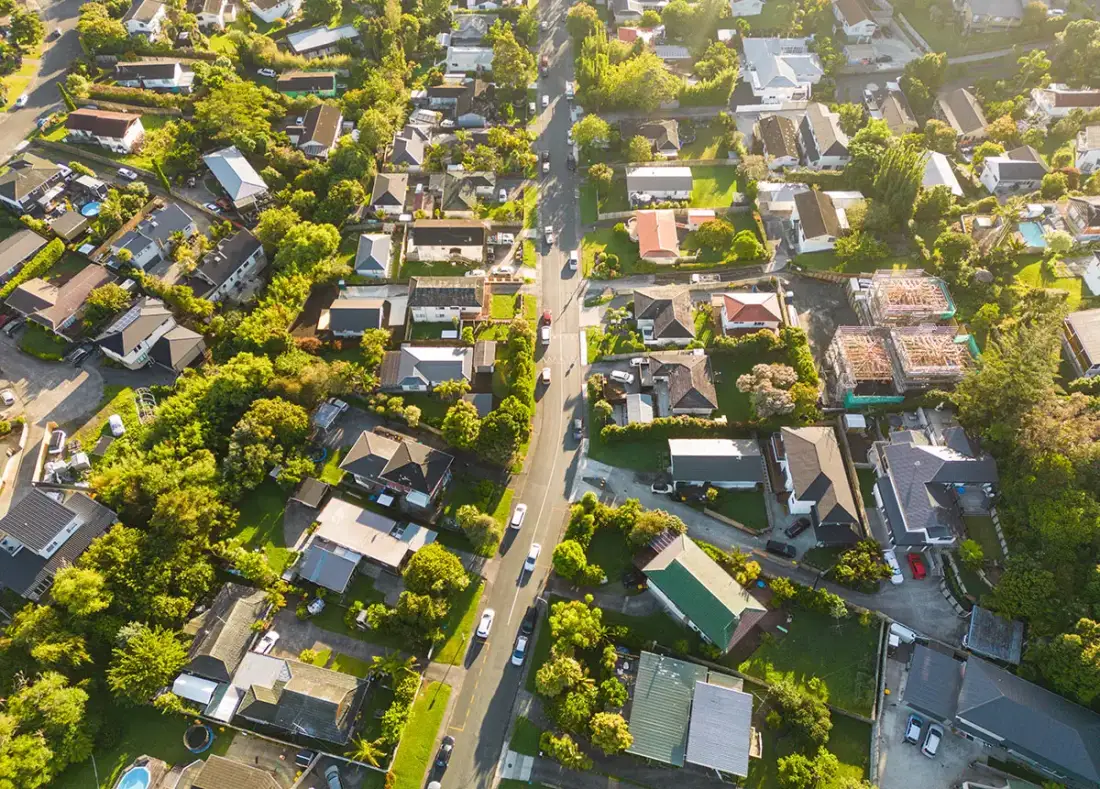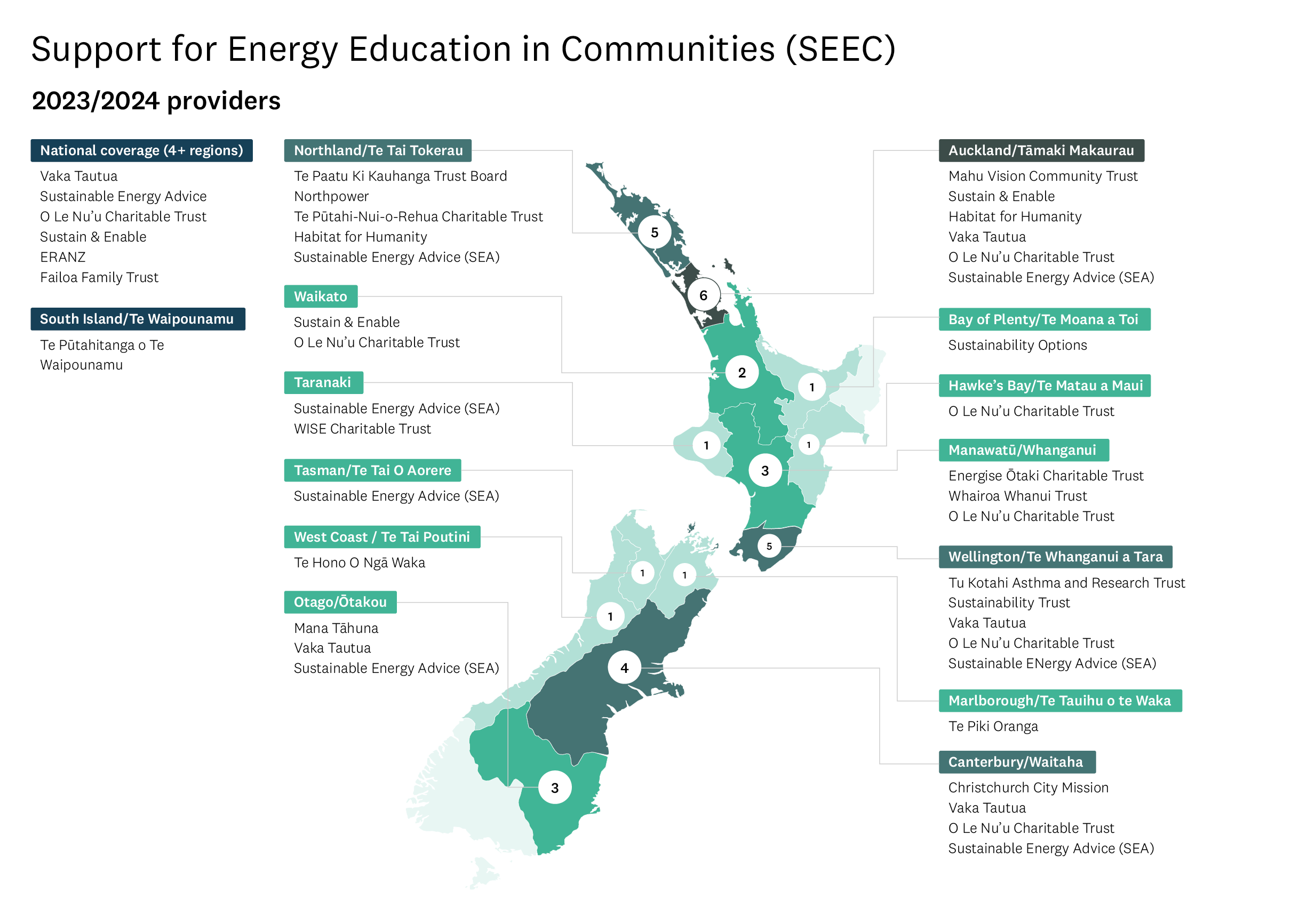Objectives
Support households in energy hardship through delivery of in-home energy advice interventions and support services.
Eligibility
- Service providers who have a track record in providing targeted, specialised services and education to households in energy hardship
- Service providers who have existing staff who have Home Performance Advisor Certification
- Service providers who have established pathways to receive referrals for households and experience in providing referrals to the Warmer Kiwi Homes and Healthy Homes Initiative.
About our last Request for Proposals (RFP)
SEEC supports providers that offer targeted, specialised advice and education to the 300,000 households in energy hardship in Aotearoa New Zealand.
These providers use the funding to support households achieve warmer, more energy-efficient homes and lower their power bills.
In February 2025, responsibility for administering SEEC transferred from MBIE to EECA.
In April, we opened a Request for proposals (RFP) to offer up to 7 providers grants to deliver at least 800 unique in-home energy interventions and support services each, by 31 June 2027.
Recipients for this, and previous rounds of funding, are listed below.
Who should apply
We sought established providers who are experienced in providing targeted, specialised advice and education to households in energy hardship.
You must:
- have been working with the community(ies) you wish to provide in-home services to for at least 5 years
- have existing staff employed by your organisation who have Home Performance Advisor Certification, and, if required
- be able to train staff to Home Performance Adviser Certification.
- have established pathways to receive referrals for households in energy hardship.
- have existing referral pathways to Warmer Kiwi Homes, Healthy Homes Initiative and other support services.
- be experienced in conducting and reporting post-intervention surveys.
What applicants need to provide
- in-home energy advice interventions to assess household energy use and provide tailored advice on reducing energy costs
- household-specific recommendations, including changes in energy usage habits.
- follow-up with households to track progress and reinforce energy-saving behaviours.
Providers also need to be able to provide these support services (though not for every household):
- low-cost energy efficient equipment and devices e.g. LED light bulbs, draught stoppers, thermal or double-layered curtains, energy-efficient power strips, and hot water cylinder wraps to households.
- compliance checks with Healthy Home Standards and support/advocacy for tenant’s home to become Healthy Homes Standard-complaint with the landlord.
- inspections to identify inefficiencies, such as poor insulation, draughty windows, and inefficient heating sources.
- minor home upgrades like sealing draughts, installing window insulation kits, and fixing ventilation issues.
- referrals to Warmer Kiwi Homes, Healthy Homes Initiative and other support programmes.
- personalised energy advocacy and power bill support
- assist eligible families in applying for financial support schemes or hardship grants
- complete follow-up surveys with at least 10% of households.
Providers are required to provide quarterly reporting to EECA and attend regular meetings with EECA’s SEEC relationship lead to discuss project progress.




